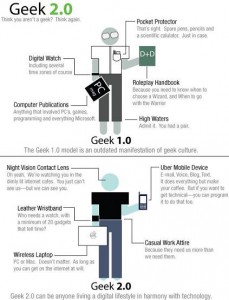Welcome to this week’s Language Blog Roundup, in which we bring you the highlights from our favorite language blogs and the latest in word news and culture.
We were saddened by the passing of poet Amiri Baraka. Baraka, formerly known as LeRoi Jones, was a long-time activist and former poet laureate of New Jersey.
In case you missed it, the American Dialect Society picked because as their Word of the Year (WOTY). At The Week, Arika Okrent took a closer look at because and other WOTY nominees such as catfish, –shaming, and binge-watch, and at Mental Floss gave us the words of the year from other countries. Meanwhile, the OUPBlog had their own round-up up of various WOTYs.
In other language news, the Academie Francaise is asking French people to drop ASAP from their lexicons, declaring the acronym “21st-century rubbish” (psst, it’s from the 20th century, the mid-1950s to be exact). However, the Finnish are fine with English loanwords such as spammata for spam, googlata for google, and prinata for print.
A Los Angeles library is offering high school diplomas; the National Book Critics Circle finalists were announced; and the Poetry Foundation looked back at the year in plagiarism. A word in the news this week was Mipster, a Muslim hipster who is striving to “break the stereotype of the hijab as a symbol of oppression.”
Alexis Madrigal at The Atlantic told us about 19th century telegrapher “text speak.” Geoff Pullum argued against because as a conjunction. NPR’s Code Switch looked at the ugly and fascinating history of the word racism and the Shakespearean lineage of crib, slang for “house.”
Ben Zimmer told us where the phrase screw the pooch came from. Arika Okrent corrected some Klingon grammar; gave us 11 little-known words for family members; and discussed the listicle as literary form.
James Harbeck explained why it’s difficult to tell a Canadian accent from a Californian one, and then tested us on the proper use of myself. Lee Gale at Mind Your Language had some fun with collective nouns. Stan Carey introduced us to the awesome Indo-European Jones (“Grammar Nazis. I hate these guys”), and at Macmillan Dictionary blog, considered the amazeballness of amazeballs.
At Lingua Franca, Ilan Stevens examined the word quixotic, and Allan Metcalf got to the root of the word sophomore. At Language Log, Victor Mair celebrated the birthday of Zhou Youguang, the father of Chinese pinyin.
Barry Popik took on the term snow-trolling. Fritinancy’s words of the week were bodgery, “bungling, botched work,” and afterdrop, “a further cooling of core temperature [that] occurs after the victim is removed from the cold environment.” Fritinancy also took a look at some portmanteaus in brand names, the good, the bad, and the ugly.
Word Spy spotted underbrag, “a self-deprecating comment that acts as a brag because it shows the person is confident enough to admit a failing or embarrassment”; life radius, “the distance from home or work within which a person performs most of their day-to-day activities”; and parcel mullet, “a lawn that is short and well-maintained in the front of a house, but overgrown and wild in the back.”
At Slate, Richard Hudson recounted a brief history of one of our favorite activities, diagramming sentences; Kathryn Schulz at at Vulture named the five best punctuation marks in literature; and Arrant Pedantry guided us through the pronunciation of Smaug.
This week we learned that terms like highbrow, lowbrow, and shrink came from phrenology, the study of brain shape and head reading; about the next trend in selfies, the selfeye; and the strange and fascinating story of Flowers in the Attic author, VC Andrews. We also laughed ourselves silly over the New Yorker’s parody of a recent dialect quiz (we’ll be calling rubber bands Satan’s bracelets from now on).
That’s it until next time!
(Photo: Amiri Barka via Poetry Foundation)







